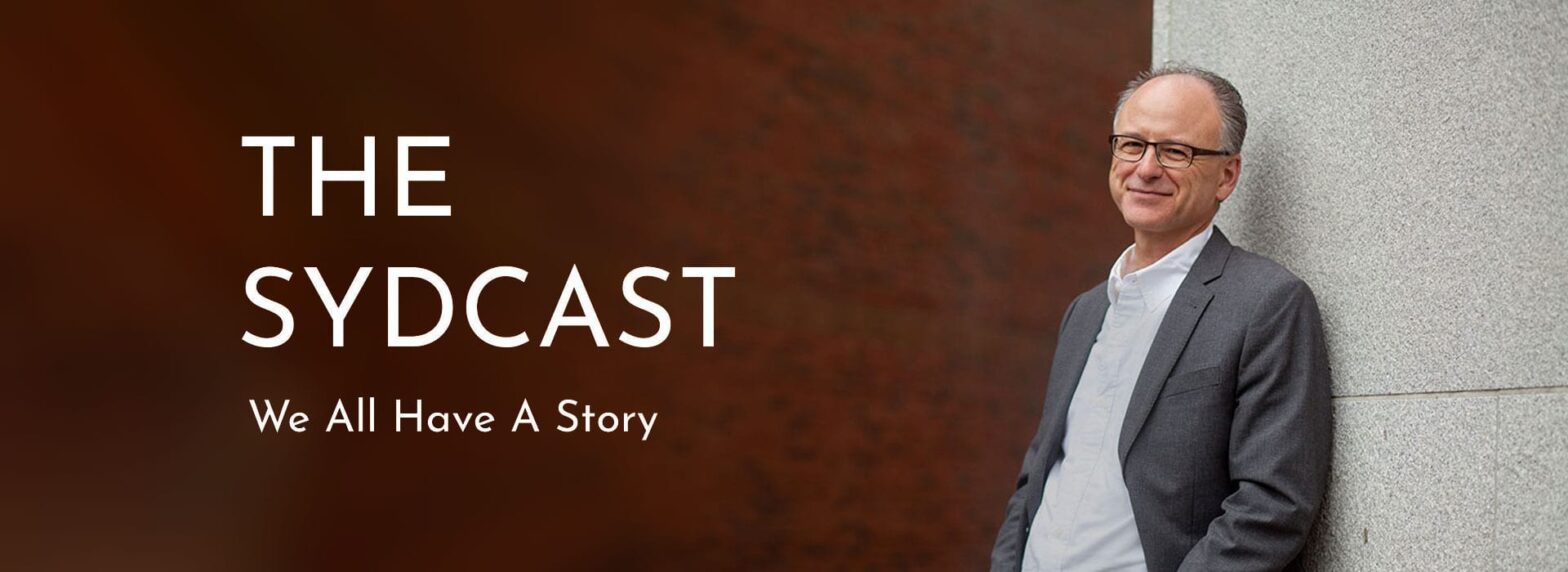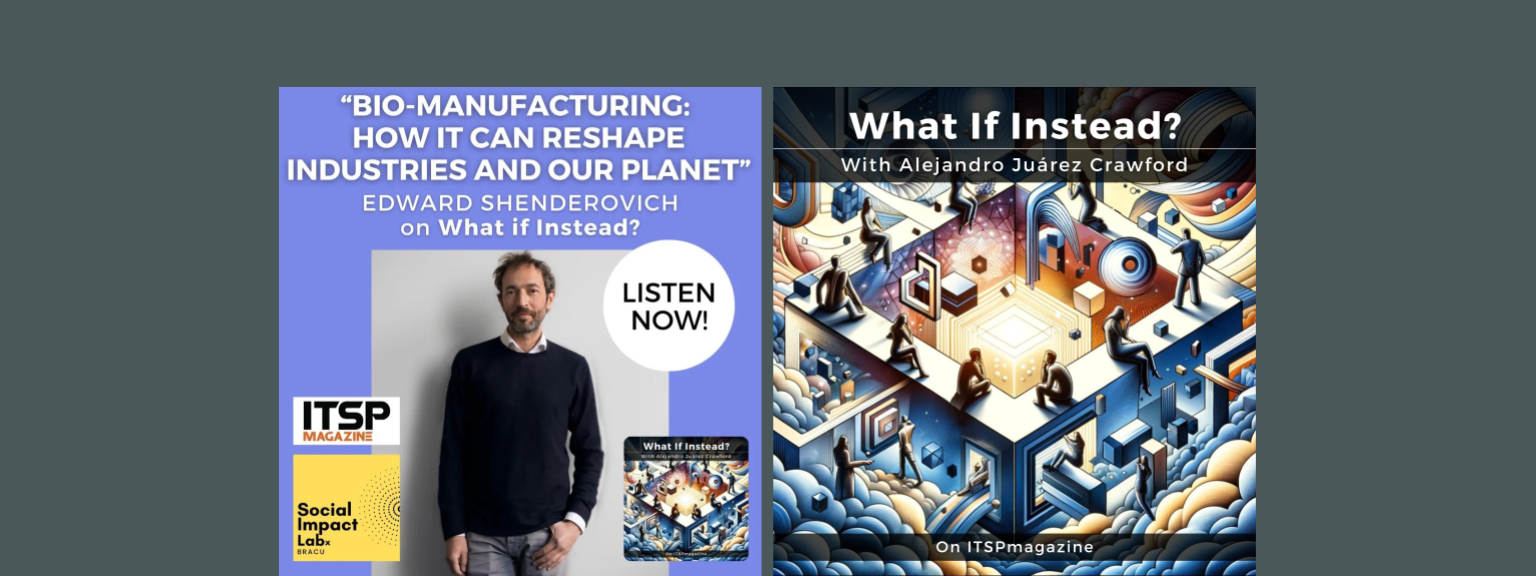The Sydcast sits down with a fascinating guest each week to hear their story, who they are, and how they got to be that way. Syd Finkelstein, a professor at Dartmouth College and the host guides listeners on a journey of learning discovery, and good, old-fashioned conversation. Listen to the Sydcast interview Alejandro Juárez Crawford, co-founder and CEO of RebelBase.
RebelBase is commercializing a library of educational modules that they’ve developed. They’re cloud-based interactive tools and he and his team are providing them globally, including places like Bangladesh to Columbia. See the beginning of the conversation below:
The way we do things today is as obsolete as the steamship or the telegraph operator. But those shelters have prevented us from realizing it’s obsolete yet. And so unless we’re investing now in enabling all this experience from the bottom up, the organizations that don’t are going to have a real shock to their systems. But what about all the decision makers that would rather pay some top five consultancy to do an innovation program with them? Programs like this will always fail because they’re asking the wrong people.
And how might we democratize such an effort? How might we make it easier for people around the world to learn and grasp and get the tools to be able to change and adapt and innovate and be that entrepreneur?
Up until today, if you see something and it’s backwards, it’s broken, whether it’s the way transportation works in your city, or the way agriculture works in your state, and you’re a participant or an observer and you say, this is stupid the way this works, what have your options been?
Well, you can try to get the powers that be to change it. It’s been very difficult for regular people to think that they could launch an experiment in how to make it work better. And RebelBase makes that possible by democratizing and accelerating bottom-up innovation, enabling people who understand problems to launch experiments that could become solutions.
And if that sounds a little highfalutin,’ the bottom line is that we have from folks who’ve been working in their industry for decades, to students who are teenagers, we have folks who really are launching experiments and then learning by doing. What RebelBase provides is a digital playground and structure and set of connections where instead of connecting around what’s already been done the way every other platform we have does, it allows you to collaborate, to launch emerging solutions and build the muscles to do that in your community, in your career, and in your life.
To give you an example, RebelBase have these films that tell the story of a university network where there’s an innovator in Dhaka in Bangladesh named Sebastian Groh, an entrepreneur, known quite well known for his work on peer-to-peer solar, where in Bangladesh he’s enabling folks to essentially make solar into a peer-to-peer phenomenon and then deal with the sustainability of batteries in rickshaws, in electrically powered resort.
Sebastian says: That’s not enough. What I’m doing. I need to enable lots of people to create their own experiments to make things work. And not only that, we can’t just do that for a few people in Silicon Valley that want to get their dry cleaning delivered more conveniently to their car window, or something. We need to do it with folks who are dealing with rolling blackouts and are dealing with rising waters and are dealing with problems that when I see one of these groups working on RebelBase often don’t even know exist.
How does this work? What makes someone want to do this?
There are four factors right now that are changing the pressures and the incentives on organizations. The first is what journalists like to call the great resignation. What’s underneath that from the research I’ve been able to do is young people fed up with the idea that they’re just supposed to take a place, rent out their days to solutions that seem broken and backwards to them. There’s this sense to put it in the terms that are coming up in the data of wanting to be involved in projects with purpose and to have some discretion over that. So the first pressure is that every organization’s gonna need to draw talent in this generation. And in order to get the best talent, organizations—I believe that there’s evidence already—that we’re gonna see increasing pressure on those organizations to provide opportunities to do bottom up work.
The second is actually something that a fellow Tuck alum Errik Anderson put into words, after I was talking about it, beautifully. He said: for the first time in our history, a knowledge worker doesn’t have to get to London or Berlin or New York or San Francisco. A knowledge worker can be anywhere in the world where there’s a broadband connection. And that is not a small change where: oh great, we can do some telecommuting. That’s a radical change in what kind of access you need geographically to be part of the team that creates the way we do things tomorrow. So if Errik’s right and I believe he is that who gets to be a knowledge worker is radically changing, then there’s a second kind of pressure. Because unless we enable distributed teams to examine how things work now and launch new ways of doing them, then so many of those large corporations that you deal with are going to be disrupted out of existence, with their current models.
There’s a third pressure which derives from the fourth industrial revolution. Many of today’s jobs are going to be replaced by AI. All you need to do is get chauffeured by an EV or realize you’ve been talking to a bot, to know that many of the jobs, and not just blue-collar jobs, but white-collar jobs too that we think of as safe, be replaced by AI. At the same time we are going to decarbonize. Right now, it might seem like we’re not, because the incumbents are so powerful with the trillions in subsidies toward continuing to take fossil fuels out of the ground. But we must decarbonize. And because of that, as that pressure builds, we are going to radically change our supply chains, our business models in favor of circular models, the very way we do business. So if you think of these macro factors, which I would argue are bigger than the internet, bigger than the railroads and the canals, we are about to see this radical transformation.
If you just think of the three I’ve listed in what motivates us talent, what attracts talent, let’s put it that way, who is involved in developing the way we do things? And these big shifts which change the throughput, they shorten the shelf life of the way we do something now and give advantage to folks involved in creative destruction. So the big idea is we need to democratize access to doing creative destruction. And not just because it’s a good idea, but for organizations that would like to survive and thrive, we’ll need to innovate from the bottom up.
Listen to the entire Sydcast interview of Alejandro Juárez Crawford, co-founder and CEO of RebelBase.


